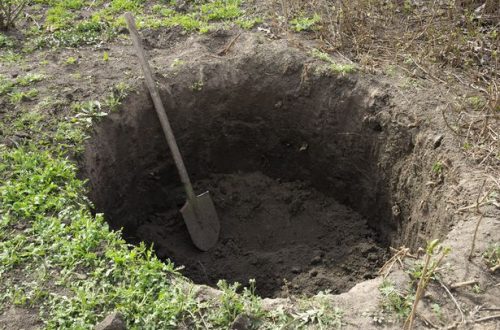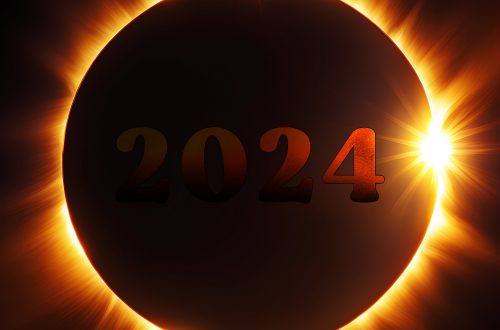This is a guest post by Petra Marquardt-Bigman
The recent revelations that Iran has worked for years on constructing a secret uranium enrichment facility have greatly intensified concerns about the Islamic republic’s nuclear program. Claims that this program is for civilian purposes have obviously been undermined by this secret project, but the debate about what should and could be done to prevent Iran from acquiring nuclear weapons remains as contentious as ever – not least because all too often, ideology seems to trump reasoned argument.
The ideological fronts in this debate echo some of the divisions that developed in the wake of 9/11 and hardened during the controversies about the Iraq war. A marked difference, however, is that in the debate about the Iraq war, nobody seriously argued that it would be a good thing if Saddam Hussein really had weapons of mass destruction – after all, he had actually used them. But there are people on the left – or rather, people who claim to be on the left – who think that a nuclear-armed Iran is just what the world needs. “Give Iranian Nukes a Chance” is the playful title of an article published in August 2005 on the website of “In These Times”, an American magazine that describes itself as being committed to “progressive values”. The author of the article is the philosopher Slavoj Zizek who enjoys rock-star-like celebrity among his fans; indeed, in 2005, he even was the focus of a movie that presented him not only as an “eminent and intrepid thinker”, but also as “the Elvis of cultural theory”.
Zizek justified his plea to ‘give Iranian nukes a chance’ with his belief that the Cold War doctrine of MAD, i.e. mutually assured destruction, should be considered valid also for a nuclear-armed Iran, which could thus be expected to refrain from actually using its nuclear weapons in a war of aggression.
Furthermore, Zizek argued that an Iranian nuclear arsenal would actually be a positive factor, because in his view, “countries like Iran should possess nuclear arms to constrain the global hegemony of the United States”.
Regardless of the question if Zizek’s article was widely read, arguments like those advanced by him resonate in the debate about Iran, as even a casual glance at supposedly left-wing discussion boards like the Guardian’s “Comment is Free” site illustrates. It is therefore worthwhile to have a closer look at his reasoning:
“As to Iran and nukes, the surprising fact is that the MAD logic still operates today: Why hasn’t the tension between India and Pakistan exploded into an all-out war? Because both sides are nuclear powers. Why have the Arab states not risked another attack on Israel? Because Israel is a nuclear power. So why should this MAD logic not work in the case of Iran? The standard counter-argument is that in Iran, Muslim fundamentalists are in power who may be tempted to nuke Israel. (Iran is the only large Arab state [sic!] which not only does not diplomatically recognize Israel, but resolutely denies its right to exist as a state). Is, however, the Iranian regime really so ‘irrational’? Isn’t Pakistan, with its nuclear arms and its secret services’ ties to al-Qaeda, a much greater threat? Furthermore, two decades ago, Iran was brutally attacked by Iraq (with active U.S. support), so it has every right to feel threatened.”
What is perhaps most striking in this passage is that Zizek refers to Iran as an “Arab state”. It is hard to imagine that he really doesn’t know that Iran is not an Arab state, but even if we assume he meant to say “Muslim state”, it is clear that he misses a crucial point by overlooking the fact that Iran is a non-Arab Shia-majority state whose nuclear arsenal will inevitably be seen as a threat by Arab Sunni-ruled states. Therefore, the risk is that Iran’s nuclear ambitions will trigger nuclear proliferation in the Middle East, including the risk that nuclear material could be used in a “dirty bomb” by groups like Hezbollah or Hamas which are supported by Iran.
It’s obviously hard to see why progressives should be nonchalant about the risk of nuclear proliferation in a conflict- and violence-plagued region like the Middle East, but this risk is actually widely ignored by those who argue like Zizek from a rigid ideological point of view that welcomes anything that promises “to constrain the global hegemony of the United States”. Moreover, when it comes to the Middle East, it is clear that opposing this pernicious US hegemony has an almost irresistible appeal to “progressive” sensibilities since it also means depriving Israel of its most important ally.
In this context it is very revealing that Zizek acknowledges that Iran “resolutely denies its [i.e. Israel’s] right to exist as a state”. Given his faith in MAD, he apparently believes that if Israel has nuclear arms capable of “destroying” Iran, the Jewish state has no reason to feel seriously threatened by a nuclear-armed Iran, particularly since Zizek – like many of his fellow “progressives” – feels it would be rather irrational to assume that Iran’s rulers are irrational. From a “Qods Day” speech delivered in December 2001 by the “moderate” Rafsanjani, one can safely conclude that Iran’s theocrats would appreciate this assessment:
“If one day, the Islamic world is also equipped with weapons like those that Israel possesses now, then the imperialists’ strategy will reach a standstill because the use of even one nuclear bomb inside Israel will destroy everything. However, it will only harm the Islamic world. It is not irrational to contemplate such an eventuality.”
Of course it is progressive to be orientalist about such rhetoric and dismiss it as flowery oratory meant to please the Middle East’s “anti-imperialist” Muslim masses – and they are indeed pleased: as the results of a survey conducted last year by the Anwar Sadat Chair for Peace and Development at the University of Maryland show,
“a clear majority of Arabs, 62% in total, were unconcerned about Iran developing nuclear technology. In fact, 44% as opposed to 29% said they would not mind if Iran were to possess nuclear weapons and thought that the outcome for the Middle East region would be more positive if they actually did.”
Since most of the region’s authoritarian governments worry plenty about a nuclear-armed Iran and thus don’t at all agree with these views of their citizens, it might seem that there is after all something “progressive” in cheering Iran’s nuclear ambitions. Moreover, the idea of “standing up” to the US and Israel has clearly enormous appeal for the average “Ahmed” in the Middle East: the results of that same survey show that the popularity of political leaders was determined by the perception of how “outspokenly defiant of Israel and the U.S.” they were – and Hezbollah leader Hassan Nasrallah took the first place in this contest, followed by Syrian President Bashar Al-Assad in the second place, and Iranian President Mahmoud Ahmadinejad in the third place … How’s that for progressive company? Interestingly enough, Zizek philosophizes about the need of every “power structure … to rely on an underlying implicit threat”, and while he seems most interested in applying his related insights to western “power structures”, he does make the point that “the anti-democratic Arab regimes need Israel as the figure of the Enemy that legitimizes their rule”. He might have added (but didn’t) that this is also a strong selling point for the Iranian regime: it was after all Khomeini who, in his first few months as Iran’s “supreme leader”, established “Qods Day” as an annual event on the last Friday of Ramadan to rally Muslims world-wide to demonstrate “in support of the legitimate rights of the Muslim people of Palestine”.
While this year’s “Qods Day” events in Iran didn’t go quite as planned, the motivation for designating the day was clearly the attempt to rally the entire Muslim world under Iran’s leadership to the noble “anti-Zionist” cause, and there can be little doubt that this only contributed to the radicalization of sentiments in the region over the past 30 years. Anyone who wants to cheer Iran’s nuclear ambitions in the name of “progressive values” would do well to consider the actual consequences of Iran’s efforts to project its influence beyond its borders by supporting Syria, Hezbollah, Hamas and insurgents in Iraq. As popular as it may be in the coffee and tea houses of the Middle East to “stand up” to Israel and the US, none of these Iranian allies can conceivably be said to stand in any way for “progressive values”.
How much the debate about anything to do with the Middle East has been poisoned by empty “progressive” posturing is well illustrated by a comment that was posted on the Guardian’s Cif website in response to a recent article with the eminently sensible message: “The world can’t trust Iran. Iran’s secret nuclear plant is part of a long pattern of deception. It’s time to stop talking and move forward with more sanctions.” The article was published at 11 A.M., I chanced on it some three hours later and noticed that one of the first few comments had already garnered 45 recommendations (at that time, this was the highest number of recommendations for any of the early posts). The comment read:
Briar 26 Sep 09, 11:17am (about 3 hours ago)
Another triumph for Israel, which has succeeded once again in winning tacit support for its illegal nuclear arsenal, its illegal stealing of Palestian land and its paranoid bellicosity. That such a corrupt theocracy should be accorded such power ought to appal us. Instead we obsess against the country most threatened by the hate-filled fanatics in Tel Aviv and wilfully refuse to see the whole situation.
Recommend? (45)
When I checked back later that day to see how many more people had endorsed this comment, it had been deleted. It’s not without irony that a day before “Briar” typed his lament about how much Iran was threatened by Israel, Mahmoud Ahmadinejad had been asked in an interview with Time Magazine if Iran felt the need for “a deterrent capability in order to confront the nuclear arsenal that the Israelis have”. Here is what Ahmadinejad responded:
“We believe that the Zionist regime is too little to be able to pose a threat to Iran. We feel that the nuclear weapons have no application whatsoever in this time and age. The Zionist regime must as well give its attention to resolving the situation in Gaza and then leave other things for later on. If the nuclear arsenal could have been of any use, it would have helped the situation in Gaza. In my opinion, in our opinion, the atomic bomb is a concept that belongs to the previous century. It really has no applicability today.”
So can we conclude that for Ahmadinejad, the fact that “the Zionist regime” didn’t nuke Gaza goes to show that nukes are obsolete?


